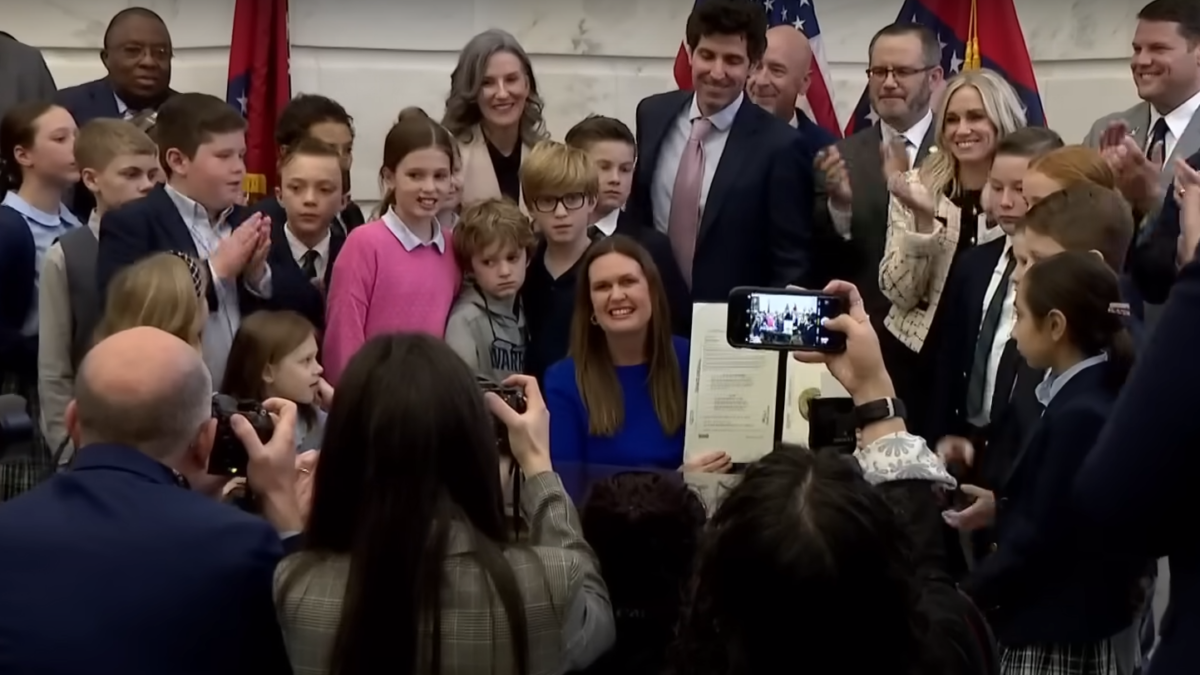
College has gotten a bad rap of late, and not entirely undeserved. Considering the skyrocketing cost, declining academics, and rampant leftist indoctrination that are epidemic in institutions of higher learning, parents are wise to do a thorough cost-benefit analysis before blindly handing their fresh-faced young high school graduates over to the higher education industry.
Too many people are still of the mindset that a degree from a name school is a sure ticket to long-term career and financial success and that there is no choice but to suck up the outrageous cost and toss their kids into the equivalent of a moral and philosophical minefield while holding their breath and hoping for the best. The truth is that a college degree can no longer be unquestioningly trusted to provide the job security or well-rounded education it once did. But that doesn’t mean there aren’t schools out there that are still selling something worth buying.
The trick in shopping for a college is the same as in shopping for anything else: do your research, stay within your budget, and don’t buy it if you aren’t going to use it.
Do Your Research
Whether it’s food, clothing, transportation, or college, an impulse purchase is not a smart purchase. It is all too easy for consumers to get stuck in ruts, considering only the most obvious paths and discounting less familiar ones, leading to a mismatch between school and student.
As an adult looking back on my own educational journey, I can now see I severely limited my options. I seriously considered only one school. To be sure, it was one of the top schools for the discipline I had selected (music), and it was only about 250 miles from home. But I had a lot more buying power than I realized at the time.
I was a National Merit scholar, but didn’t understand what that really meant about my options. My parents also didn’t know any better. So I ignored a personal invitation to interview at a prestigious private school that probably would have given me a lot more money to attend than did the school I ultimately went to.
I am content with how it all played out. I got formidable training at a nationally known music school, and I met and married my husband there. But if I had it to do over again, I’d cast a wider net. When my own children started looking into college, I encouraged them to do that. I am convinced it paid off in the case of my two kids who are now in college. They both ended up at schools I would never have initially thought of but that turned out to be perfect for them, academically and financially.
There was a time a college education was the less-traveled road; for many people now it is the default. But especially in light of the increasing cost and less reliable return, every individual should ask whether college is indeed the right choice for him.
Could it be that a vocational or apprentice program would provide the needed training for what someone ultimately hopes to do? Or might it be wise after high school to spend a few years gaining job and life experience and saving up some money before deciding on a college course of study? These are questions that can only be answered on an individual basis. But they should be asked, and too often they aren’t.
Shop Within Your Budget
If you decide a college degree is indeed the goal, it is also worth considering a variety of ways to achieve it. Again, it is tempting to assume there is only one valid option, and that it requires piling up massive debt. That may be the case if the student refuses to consider anything other than on-campus housing at a private institution. But when the parameters are broadened to include the possibility of attending a public university or community college, living at home, and taking classes part-time or online, the financing options also open up.
Not long ago I was conversing with a relatively new college graduate. He shared that he personally has about $100,000 in college debt for his undergraduate degree only. He and his wife pay more than $1,000 per month together on their college loans. This young man is not in a high-paying field. He is a liberal arts writer type like I am, and tutors to make a few extra bucks to cover bills. If he had been my son, I would have told him that taking on $100,000 for a liberal arts degree is insanity.
So far my husband and I have sent two of our three children to college. The first one attended almost entirely on scholarship. We were able to contribute the small balance that was not covered, so he never even had to fill out a Free Application for Federal Student Aid. The second is also attending primarily on scholarship but getting some financial aid, including a small loan. Before accepting the loan, we did a gut check and decided it was an amount that would not seriously hinder her ability to get started in life. If an education loan impacts the type of car or residence one can get or limits travel and recreation choices, that is a reasonable tradeoff. If it impacts one’s ability to eat and pay the electric bill, there is a problem.
I realize that not every student will be offered thousands of dollars’ worth of scholarships. That is when to ask this question: Considering the student in question’s future earnings potential, how much is it reasonable to borrow? The budget should determine the options, not the other way around.
Actually Use that Degree
We’ve all done it. We’ve bought something that we promptly took home, threw in the closet or shoved on the top shelf, and never used again. If it’s a blouse or a juicer, that’s not such a big deal. If it’s a $100,000 college education, it’s a much more expensive lesson.
Please understand: I’m not suggesting one should only major in a field of study that has the promise of returning big bucks in the end. I majored in music and English, for crying out loud. I am glad I did, because even though the various freelance jobs that I currently perform don’t technically require a college degree, I credit my college years with developing the skills necessary to do them.
But if the college experience is not about engaging in learning but instead mostly about putting off adult life for four more years while you try to find yourself, it is an enormous waste of time and money. You can put off adult life by working an hourly job and living at home a few more years.
College should be about one of two things: 1) pursuing a course of study for a job you are sure you want to do, or 2) reading the great books and enlarging your mind while musing on the true and the good. Some people don’t value the second use of college; I do. But if you are a parent who knows your new high school graduate is not inclined to take worthwhile courses, attend the lectures, hit the books, and actively avail himself of all that a college education has to offer, you should think twice about financing one (and advise him to think twice about it, too).
As mentioned, my husband and I have successfully launched two of our three children from high school into college. The oldest is now in a master’s program, but had he not been offered a sufficiently lucrative fellowship he was prepared to change course. We have one more kid to see through to high school graduation. College may be in his future, but I am not certain of it.
Over the next six years as he completes junior high and high school, we will be watching to see what shape his interests take and ascertain what sort of scholar he might become. My husband and I joke that he may be the only one of our kids capable of supporting us in our old age. Joking aside, it’s quite possible he will end up making more money via a trade or vocational program than my older children will from their liberal arts degrees.
We remain open to all possibilities, and there are signs that increasing numbers of people are doing the same. College enrollment continues to experience a downturn. It appears that the college tuition bubble may be approaching its limit. Neither of these developments is a bad thing. Instead, they may indicate that people are realizing that college, while still desirable, is not for everyone, and that paying for something you don’t need and aren’t going to use is like buying a mountain from a traveling salesman.









